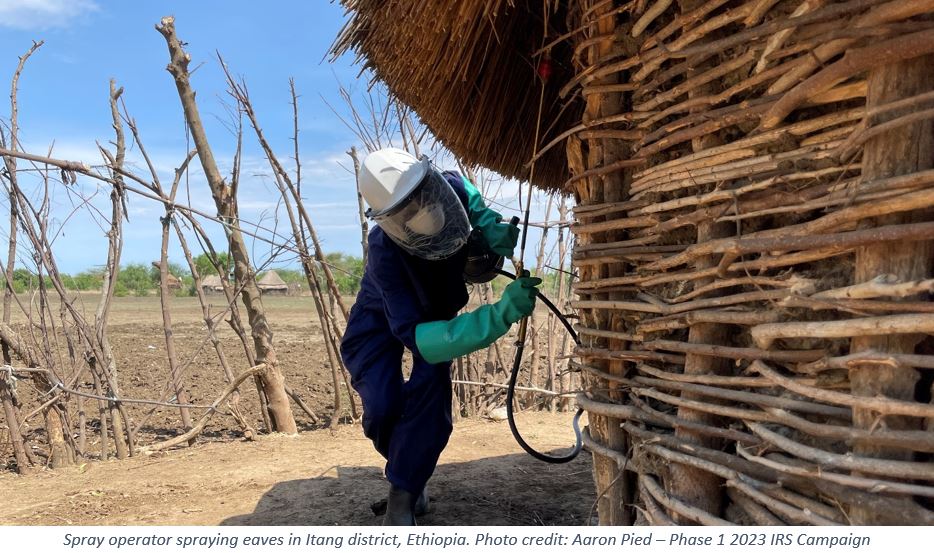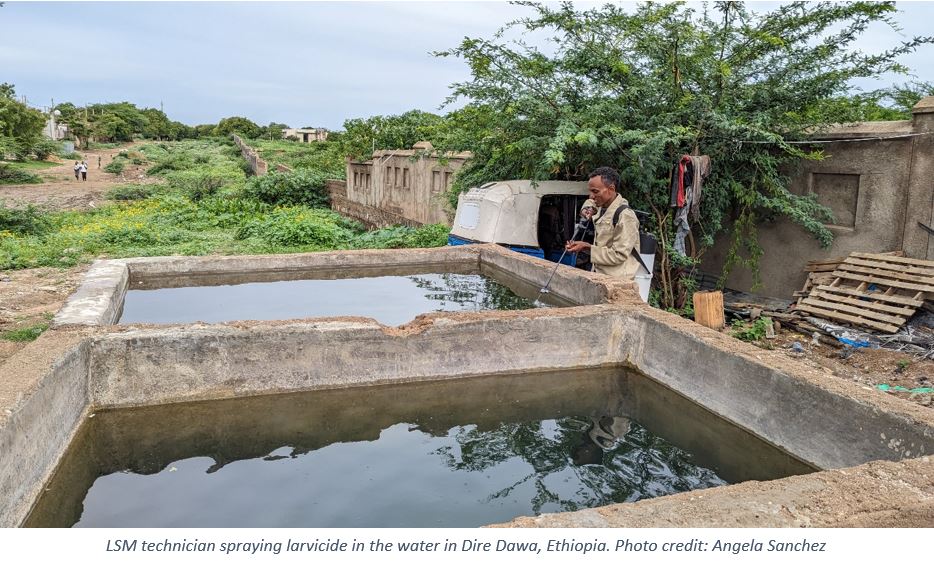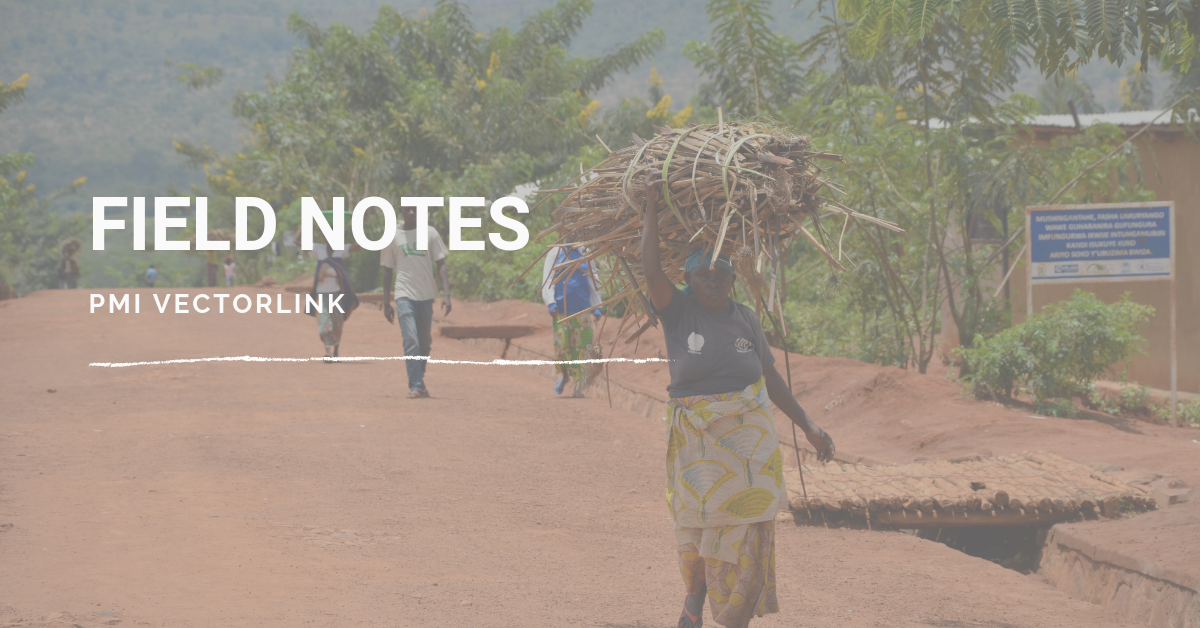 The PMI VectorLink Ethiopia team has been busy! Many would say they are a constant source of motivation, in this week’s case, Monday Motivation! They just completed the second and final phase of the 2023 indoor residual spraying campaign while simultaneously implementing the 11th consecutive month of Larval Source Management (LSM) for An. stephensi control in eight towns. In the same time frame, the team successfully transitioned ownership of LSM operations to six town administrations.
The PMI VectorLink Ethiopia team has been busy! Many would say they are a constant source of motivation, in this week’s case, Monday Motivation! They just completed the second and final phase of the 2023 indoor residual spraying campaign while simultaneously implementing the 11th consecutive month of Larval Source Management (LSM) for An. stephensi control in eight towns. In the same time frame, the team successfully transitioned ownership of LSM operations to six town administrations.
Despite enormous security challenges and road closures, VL Ethiopia completed both phases of IRS with no major incidents, and unlike previous years, reached the vast majority of targeted communities. While some districts in Amhara and Benishangul-Gumuz regions had a five-week pause in preparatory activities due to security concerns, all districts began the campaign within one to two weeks of their scheduled start date and finished within the planned number of operational days. Preliminary results show 92-97% progress across all originally targeted districts, and 91-97% coverage. The team also introduced IRS for the first time in seven refugee camps in Gambela region, where nearly half of the region’s population resides, based on the successful implementation of IRS in three refugee camps in Benishangul-Gumuz in 2022.
At the same time, the Ethiopia team sustained LSM at full capacity in eight towns, treating up to 90,000 individual larval habitats with either Bti-based larvicide application or source reduction every two weeks for up to 11 months. Preliminary results of the pilot show dramatic reductions in larval indices and anecdotal reports of fewer malaria cases among residents of the LSM target areas. The intervention has been so successful that community members and health officials alike have expressed strong desire to continue LSM.
Since March 2023, VL Ethiopia has been working with the town health administrations to carefully plan and implement a long-term strategy for community-based LSM. They clearly outlined roles and responsibilities, modified tools, designed and delivered trainings, and provided targeted technical support to maximize the towns’ chances of continued success in integrating LSM into their routine public health activities. The first six towns assumed full responsibility for LSM activities as of July 1, 2023, representing a major accomplishment toward USAID’s Local Capacity Strengthening Policy.



